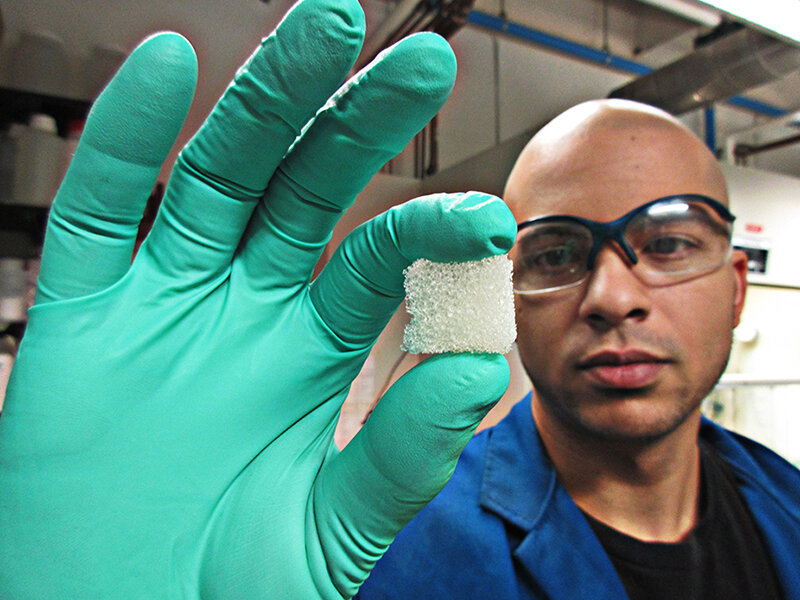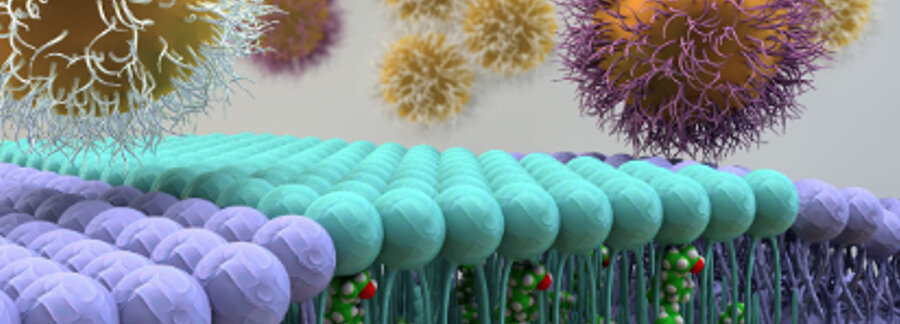Current Phase II Centers
CSP | Est. 2011
NSF Center for
Sustainable Polymers
The mission of the NSF Center for Sustainable Polymers (CSP) is to transform how plastics are made, unmade, and remade through innovative research, engaging education, and diverse partnerships that together foster environmental stewardship. CSP participants aim to design, prepare, and implement polymers derived from renewable resources for a wide range of advanced applications, and to promote future economic development, energy efficiency, and environmental sustainability in the emergent area of biobased products.
Website: https://csp.umn.edu/
Twitter: @UMN_CSP
CSN | Est. 2012
NSF Center for Sustainable Nanotechnology
The mission of the NSF Center for Sustainable Nanotechnology (“CSN”) is to develop and use a molecular-level understanding of nanomaterial properties, their aqueous transformations, and the underlying chemical interactions with living systems to enable the development of emerging nanotechnologies in a sustainable manner for societal benefit. To achieve this mission, our multidisciplinary, highly collaborative team leverages chemistry as the “central science” to understand, predict, and control the fundamental chemical and physical processes that govern nanomaterial transformations in the environment and their impacts on chemistry of life processes.
Website: https://susnano.wisc.edu/
Twitter: @SustainableNano
CGEM | Est. 2017
NSF Center for Genetically Encoded Materials
C-GEM is establishing a fundamentally new way to program chemical matter and transform the way scientists design and produce materials and medicines. Using computation and experiment, C-GEM is repurposing nature’s protein synthesizing machine–the ribosome and it’s associated translation factors–to biosynthesize genetically encoded, sequence-defined chemical polymers with unprecedented structures, functions, and activities. Ancillary activities foster innovation, engage and inspire citizen scientists, and promote inclusion to develop a unique and highly trained cohort at the chemistry-biology-materials frontier.
Website: https://gem-net.net/
Twitter: @cgem_cci
MONET | Est. 2018
NSF Center for the Chemistry of Molecularly Optimized Networks
MONET seeks a direct and quantitative method to connect the single molecular behavior of the components of a polymer network to the full range of physical behaviors of that network. Molecular strands and junctions that are simultaneously structurally active and chemically reactive hold the key to dynamic materials with enhanced operational performance and improved end-of-life value. The Center seeks to disrupt preconceived notions of what polymer networks are capable of, by making low-flow structural thermosets recyclable and reprocessable, soft hydrogels as strong as steel, and lending to soft polymer networks the catalytic abilities of hard solid-state materials.
Website: https://www.monetcci.org/
Twitter: @CciMonet
CMCC | Est. 2020
NSF Center for the Mechanical Control of Chemistry
The NSF Center for the Mechanical Control of Chemistry (CMCC) is an integrative research and training environment that brings together chemists, physicists, and engineers around the common goal of establishing a fundamental understanding of mechanochemistry – the use of mechanical force to drive chemical reactions. Mechanochemistry offers a powerful and versatile means for chemical synthesis, opening the door to new reactions and new materials that cannot be made using traditional synthetic methods. To unveil the full potential of mechanochemistry, the CMCC aims to bridge key knowledge gaps between the fields of chemistry and mechanics which have limited the broad application of mechanochemistry as a core synthetic methodology. As mechanochemical reactions can often be carried out with little or no solvent, and at lower temperatures than traditional synthetic approaches, the translation of knowledge in the CMCC from molecular-scale understanding, to large scale syntheses, has the potential for major technological and economic benefits globally, affording more sustainable approaches to the synthesis of chemicals and materials.
Website: CMCC
Twitter: @NSF_CMCC
CSOE | Est. 2017
NSF Center for Synthetic
Organic Electrochemistry
The mission of the NSF Center for Synthetic Organic Electrochemistry (CSOE) is to revolutionize the practice and education of organic synthesis at the nexus of fundamental and translational research, such that green electrosynthetic techniques play an essential role in the daily lives of a diverse array of academic, government, and industrial chemists, creating society-shaping applications spanning medicine and materials, to agrochemicals and beyond.
Website: https://cci.utah.edu/
Twitter: @NSF_CSOE
C-CAS | Est. 2019
NSF Center for Computer Assisted Synthesis
The Center for Computer Assisted Synthesis (C-CAS) uses quantitative, data-driven approaches to make synthetic chemistry more predictable. By reducing the time and resources needed to design and optimize synthetic routes, the tools and protocols developed in C-CAS help chemists to focus more on what molecules should be made and why rather than on how to make them.
Website: https://ccas.nd.edu/
Twitter: @NSF_CCAS







